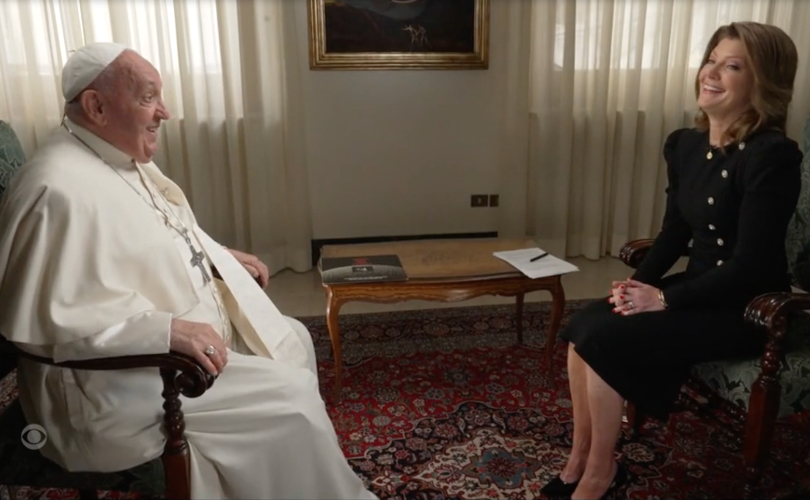Even before Russia invaded Ukraine, Germany’s decision to shut down its three remaining nuclear plants made no sense. But since the invasion Germany has very gradually been coming around to the idea that it might be time to reconsider those decisions. That’s especially true ever since Russia cut off most of the natural gas it was supplying to Russia in June.
Today, it appears Germany has finally turned a corner. The Wall Street Journal reports plans to close the remaining nuclear plants are likely to be postponed.
The decision has yet to be formally adopted by German Chancellor Olaf Scholz’s cabinet and would likely require a vote in Parliament. Some details are still under discussion, three senior government officials said. A cabinet decision would also need to wait on the outcome of an assessment of Germany’s energy needs that will be concluded in the coming weeks but which the officials said was a foregone conclusion.
Still, while a formal decision could be weeks off, the government believes two key conditions allowing a temporary extension of the life of the three remaining plants, now expected to close on Dec. 31, have been met: Germany is facing a likely shortage of gas and letting the reactors operate longer poses no safety concern, the officials said…
Extending the life of the three plants beyond their current closing date is no panacea for Germany’s looming energy bottleneck this winter. The country is mainly missing natural gas, which is used primarily for heating and manufacturing.
Yet by allowing the plants, which together account for around 6% of the country’s electricity production, to stay online, Berlin would remove the need to replace them with gas- or coal-powered plants, allowing gas to be used in areas where it can’t be replaced by other fuels.
Germany, and much of Europe, has been firing up coal plants to help replace the missing gas from Russia but lately even that has become a more difficult proposition in Germany thanks to low water levels on the Rhine river.
The Rhine River’s water level at a key waypoint hit a new low, risking the transit of fuel and other goods as Europe’s climate crisis exacerbates its energy-supply crunch…
“The current water levels on the Middle and Lower Rhine are currently at an exceptionally low level for this time of year,” the Rhine Waterways and Shipping Authority, known as WSA, said in a statement. “They are the result of the lack of precipitation in recent weeks and months.”
The Rhine is western Europe’s most important river for the transport of fuel and other industrial goods…
The measured water-level at Kaub hasn’t been this low at this time of year since at least 1990, according to official data compiled by Bloomberg.
One of the things that normally moves on the Rhine is barges of coal to fuel those newly fired-up power plants. It’s possible to transport coal via rail but it’s much more expensive. So it’s not just common sense that is driving the change in attitude toward nuclear power. It’s also the rising cost of energy which has been very steep over the past year.
German year-ahead electricity rose as much as 6.4% to 508 euros a megawatt-hour on the European Energy Exchange AG. That marks a gain of roughly 500% in the past year, driven predominantly by Russia’s moves to slash gas supply.
Electricity prices have doubled in the past two months and that has created a shift in the German population’s stubborn determination to shut down all of its nuclear plants. Even members of the Green Party now support a temporary extension.
A survey by ARD-DeutschlandTrend found that just 15% of those surveyed were in favour of the remaining reactors being shut down at the end of this year, as planned in Germany’s nuclear phase-out policy. Forty one percent of those surveyed said they supported extending the operation of the units by a few months, while another 41% said the country should continue to use nuclear energy in the long term.
Even among the supporters of the Greens, who are fundamentally opposed to nuclear power, only 31% are in favour of sticking to the agreed phase-out at the end of the year, the survey found. Almost twice as many, 61% of Green supporters, are in favour of extending operation of the reactors for a few months, while 7% support the long-term use of nuclear…
In another poll, conducted by the online survey institute Civey on behalf of Der Spiegel, 78% of respondents backed the continued operation of the last three German reactors until the summer of 2023. Even among the supporters of the Greens, there was a narrow majority for this.
This year has basically been a worst case scenario for energy in Europe. The gas is turned off, France’s nuclear grid is struggling, electricity prices are skyrocketing forcing cities to go dark and now German customers can look forward to a surcharge on the cost of natural gas this winter which will add about $500 to the average family’s annual bill. Given all of that, keeping the nuclear plants operational is the only sensible thing Germany can do.



